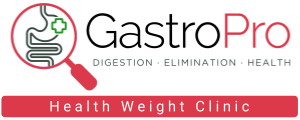IMPORTANT :
If your question is not listed below, I recommend that you schedule an appointment with me so that I can answer your questions. It will be my pleasure to answer all your questions free of charge.
A Registered Dietitian is an expert in food and nutrition. In order to obtain this title, they must obtain a university degree in food science and nutrition from a recognized university, followed by supervised practical training. Thereafter, they must pass the Entry-to-Practice Examination for Dietitians (EAPD) in order to obtain their license to practice as well as the title.
Some dietitians continue their studies and obtain master’s and doctorate degrees. The majority work in treatment and disease prevention centers in hospitals, clinics or private practices. In addition, a large number of them work in the community in public health as well as in the health and nutrition industry. Recommendations and treatments from dietitians must be backed by science and evidence. The majority of dietitians in Canada are accessible free of charge under the health plan. In the United States, you can use insurance to consult one.
You may sometimes hear some dietitians also call themselves nutritionists, but nutritionists cannot call themselves dietitians. The term “nutritionist” is unregulated in Canada and the United States, so nutrition professionals do not necessarily all have the same education or type of education. Some may have no education in nutrition before enrolling in a program while others may be highly qualified with a master’s and doctoral degree. Nutritionists do not work in hospitals and are not trained to treat sick patients. They usually work in private practices or go to lecture in nutrition groups or cooking classes. On the other hand, nutritionists are usually better qualified than dietitians to provide alternative therapies.
The title “nutritionist” is a “protected” term in Alberta, Quebec, New Brunswick and Nova Scotia, so registered dietitians may also call themselves registered nutritionists and the terms are therefore interchangeable. A Certified Holistic Nutritionist is a professional trained at the Canadian School of Natural Nutrition (CSNN) to educate people about the benefits of good nutrition. After a 1 or 2 year program, students must complete 50 hours of practice and finally pass an exam, which is uniform across Canada. On the other hand, the designation is not regulated by an order.
To learn more about the differences and similarities between nutritionists and dietitians, I invite you to consult the following links.
References:
Yes, absolutely. In fact, the majority of my clients do not live in Gatineau but, by using different technologies, such as Skype or Zoom, I can work with you efficiently, no matter where you are!
Unfortunately, because we are all biochemically unique, the only answer to this question is that it depends on each person. Although it is impossible to predict when exactly, the majority of people notice positive results after a few weeks. That said, usually you can notice a real improvement or decrease in symptoms between 4 and 12 weeks.
The cost of the program varies according to your medical history and your health condition.
